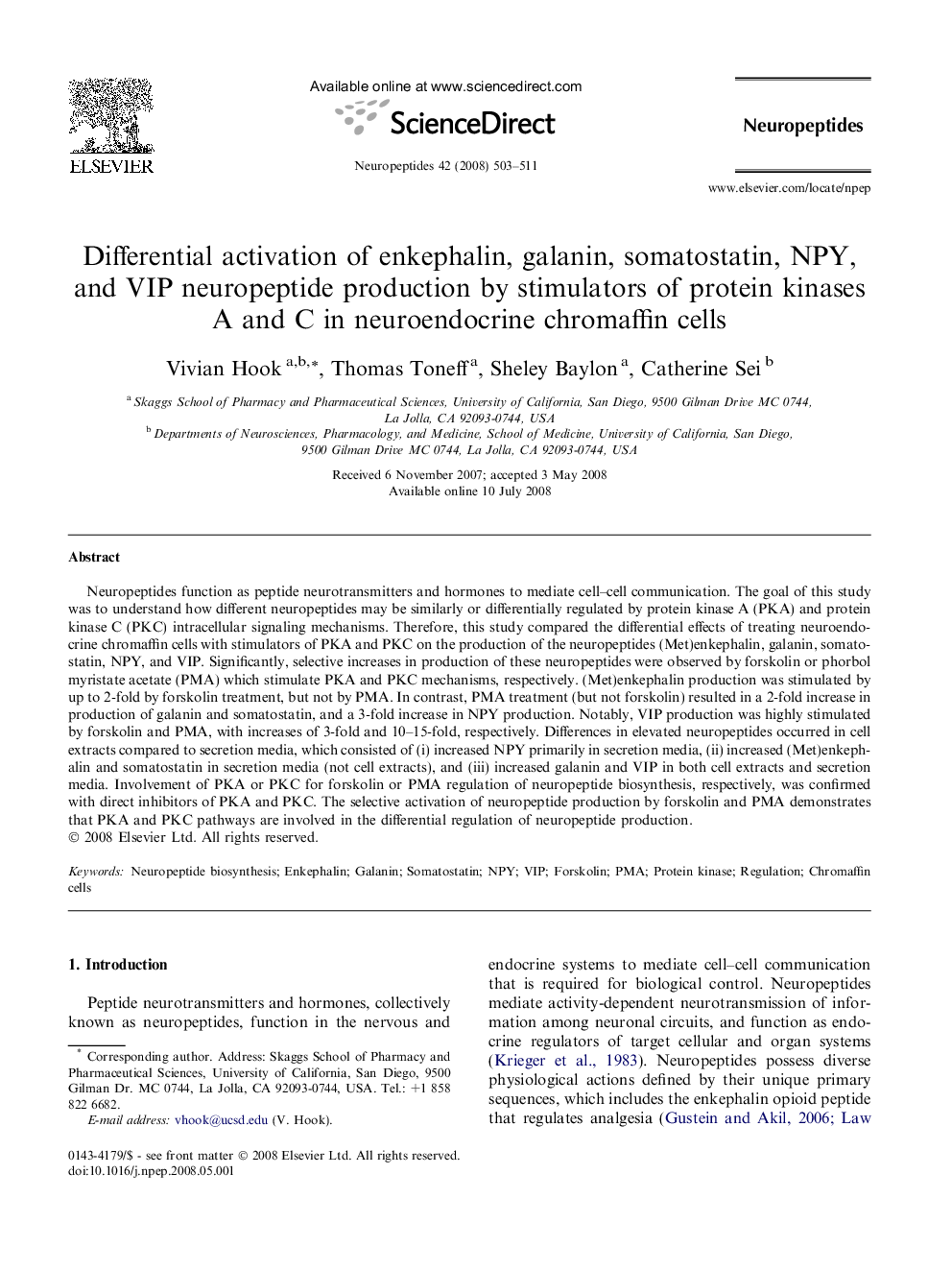| Article ID | Journal | Published Year | Pages | File Type |
|---|---|---|---|---|
| 2808600 | Neuropeptides | 2008 | 9 Pages |
Neuropeptides function as peptide neurotransmitters and hormones to mediate cell–cell communication. The goal of this study was to understand how different neuropeptides may be similarly or differentially regulated by protein kinase A (PKA) and protein kinase C (PKC) intracellular signaling mechanisms. Therefore, this study compared the differential effects of treating neuroendocrine chromaffin cells with stimulators of PKA and PKC on the production of the neuropeptides (Met)enkephalin, galanin, somatostatin, NPY, and VIP. Significantly, selective increases in production of these neuropeptides were observed by forskolin or phorbol myristate acetate (PMA) which stimulate PKA and PKC mechanisms, respectively. (Met)enkephalin production was stimulated by up to 2-fold by forskolin treatment, but not by PMA. In contrast, PMA treatment (but not forskolin) resulted in a 2-fold increase in production of galanin and somatostatin, and a 3-fold increase in NPY production. Notably, VIP production was highly stimulated by forskolin and PMA, with increases of 3-fold and 10–15-fold, respectively. Differences in elevated neuropeptides occurred in cell extracts compared to secretion media, which consisted of (i) increased NPY primarily in secretion media, (ii) increased (Met)enkephalin and somatostatin in secretion media (not cell extracts), and (iii) increased galanin and VIP in both cell extracts and secretion media. Involvement of PKA or PKC for forskolin or PMA regulation of neuropeptide biosynthesis, respectively, was confirmed with direct inhibitors of PKA and PKC. The selective activation of neuropeptide production by forskolin and PMA demonstrates that PKA and PKC pathways are involved in the differential regulation of neuropeptide production.
